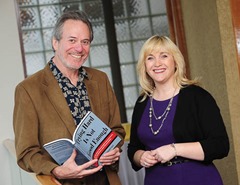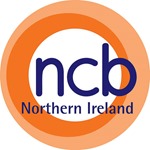Local Government Reforms: grasping the opportunities
 Whilst 2013 ended with political parties reaching a stalemate on flags, parades and the past, in 2014, it is clear that the pace of change in local government will be unrivalled. We must prepare for and grasp the opportunities that the implementation of the Review of Public Administration (RPA) will bring through the delivery of local government reform.
Whilst 2013 ended with political parties reaching a stalemate on flags, parades and the past, in 2014, it is clear that the pace of change in local government will be unrivalled. We must prepare for and grasp the opportunities that the implementation of the Review of Public Administration (RPA) will bring through the delivery of local government reform.
By April 2015, we will have 11 councils with enhanced powers, represented by a corresponding decrease in the number of councillors. For many years now, stakeholders have been working together to prepare for this change, considering the impact on services and consequences of change, while ensuring that at all times the needs of the citizen are central.
The core vision of the reform is to produce “a thriving, dynamic local government that creates vibrant, healthy, prosperous, safe and sustainable communities that have the needs of the citizens at their core.”
Statistics show that:
• since 2010, youth unemployment in Northern Ireland for those aged 18-24 years old has risen sharply from 12.7 per cent to 23.8 per cent in 2013;
• in the first quarter of 2013, 42,000
(19.1 per cent) 16-24 year olds in Northern Ireland were Not in Education, Employment or Training (NEET);
• approximately 22 per cent of children and young people in NI are currently living in poverty;
• in 2012, almost 40 per cent of Northern Ireland’s young people left school without achieving five GCSEs at C grade or above including maths and english.
This is a challenging time for our young people. We must consider what local government hopes to achieve for children, young people and families, and measure the local impact of any decisions made. To assist in this process and help decision makers to understand what impact their investment is making, NCB is working with OFMDFM to embed knowledge and expertise of an Outcomes Based Accountability (OBA) approach.
Through the Programme for Government, local councils, with their increased responsibilities and wider range of powers, will be in a position to improve service provision in the following ways.
1. Increased ability to work in partnership with other councils and governments.
NCB Northern Ireland has produced a Child Poverty Outcomes Framework for OFMDFM which establishes a cross-departmental approach in which every department understands its role and makes an effective contribution to reducing child poverty. This framework must be used to achieve the agreed outcomes and ensure transparent reporting.
2. Improved community planning processes.
We know that area-based planning, using evidence and measuring impact works. This approach should underpin community planning in 11 new councils. Our work in the Colin area of West Belfast demonstrates that this approach supports innovative thinking whilst enabling commissioners to assess the impact of their service delivery.
3. Greater influence by local people on decisions affecting them.
This engagement process must be extended to children and young people. NCB Northern Ireland has a core policy of actively engaging children and young people from across Northern Ireland in all aspects of our work, and we support others to do the same through our Participation Support Programme for Schools and Building a Culture of Participation training.
It is critical that we embrace the opportunities that these changes bring as we continue to address inequalities and achieve the best possible outcomes for children, young people and families.
 NCB Northern Ireland
NCB Northern Ireland
2nd Floor, Albany House
73-75 Great Victoria Street
Belfast, BT2 7AF
web: www.ncb.org.uk/northernireland
Twitter: @ncb_ni_tweets





